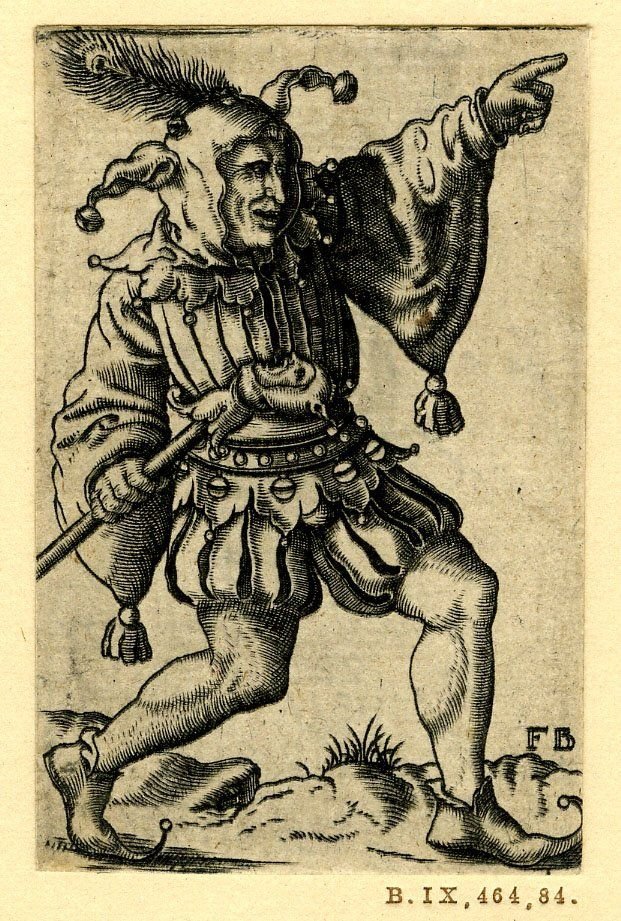What is Feste singing about? The ending of ‘Twelfth Night’ explained.
If you are studying William Shakespeare’s ‘Twelfth Night’, then hopefully you would have read Feste, our play’s fool, singing a rather melancholic song for a comedy. We are going to dissect this significant song so that you can ace your analysis of ‘Twelfth Night.’
Important context to understand
Feste is a professional fool, similar to the concept of a court jester or a joker. His role within the court and the play is to observe, comment, joke and push boundaries all under the role of entertainer. Feste, however, does not simply serve as the court’s source of entertainment, but he helps guide us, the audience, to better understand observations about life and Elizabethan society.
Genre and the significance of melancholy
Now ‘Twelfth Night’ is a comedy and revolves around the courtship and foolery of its central characters. Its tone is quite light, especially if you think about other commonly studied Shakespeare plays, such as ‘Macbeth’ with its tyrannical and murderous king and ‘Romeo and Juliet’ with its forbidden love and the tragic demise of our protagonists.
Despite its light tone, our characters deal with a variety of emotions and tricky situations, from the excessive Orsino, trapped Viola/ Cesario and our ‘notoriously’ abused Malvolio. The play is rife with melancholy, often as a pit from the peak of love. These two, widely differing experiences are central to our play. In other words, love doesn’t quite exist without its counterpart of melachony just like order doesn’t exist without chaos.
So even though this is a comedy and the play ends with the typical comedic finale with the resolution of (most of) the romantic plots and the majority of the characters end up marrying each other, we still have the very sombre final song.
Let’s analyse Feste’s song
So what is it ultimately saying?
Ultimately, this shift in tone reveals that while there was a momentary reprieve from the mundanity and dreariness of life via the play, we must all return to reality. This song transitions our exit and expulsion from the fantastical world of Illyria and back into a grounded everyday life, which, for contemporary audiences, was quite wearisome, with the immense poverty and plagues infiltrating most people’s lives at the time. Feste, our avid observer reminds us that life will always have hints of folly but that it will be mitigated with the harsher realities of human existence and throughout our journey of life which is a simple small blip on the grand passage of time, we will come to know that there will always be a momentary reprieve in the form of theatrical entertainment. Through this song, Shakespeare also undermines the concept of a ‘perfect ending’ which is prevalent through many comedic materials (think of the majority of any comedy or romcom movie, do they not all seem to live happily ever after).
How do I use this in my essay?
There are a multitude of ways that you can incorporate this final song into your essays. Any topic of folly or foolery would be a great opportunity to discuss the reality check that is Feste’s final song. Additionally, the song highlights the role of time and maturing (or not quite so), which would be easily brought up in the chaos and order theme. You may also want to discuss the social inversion that is the Twelfth Night holiday that we discussed earlier, as Feste, our lowest character, is triumphant in his observations and entertainment. In essence, Shakespeare positions the fool as having the final say, a quintessential component that is the madness of Twelfth Night. You can discuss it in a structural sense by discussing the bookending of the play with music and song, or in a character analysis of Feste as the observer and commentator. Finally, you may also want to discuss the social inversion that is the Twelfth Night holiday that we discussed earlier, as Feste, our lowest character, is triumphant in his observations and entertainment. In essence, Shakespeare positions the fool as having the final say, a quintessential component that is the madness of Twelfth Night
Reference list
Blair, S. (2022). Shakespeare’s Twelfth Night with CSEC Study Guide and Modern English Translation. Hodder Education.
Cosby, M. (2014) Twelfth Night: A Shakescleare Translation. LitCharts LLC. https://www.litcharts.com/lit/twelfth-night. [Accessed 29 August, 2024]
Fahey, C.J. (2025). Altogether Governed by Humors: The Four Ancient Temperaments in Shakespeare. [online] Digital Commons @ University of South Florida. Available at: https://digitalcommons.usf.edu/etd/230 [Accessed 9 Jul. 2025].
Interesting Literature. (2018). A Short Analysis of Feste’s Song from Twelfth Night: ‘The rain it raineth every day’. [online] Available at: https://interestingliterature.com/2018/10/a-short-analysis-of-festes-song-from-twelfth-night-the-rain-it-raineth-every-day/.
Saltau, M. (2017). VATE Literature Perspectives 2017 Twelfth Night by William Shakespeare.
Shakespeare, W., Elizabeth Story Donno, Gay, P. and Cambridge University Press (2017). Twelfth night, or, What you will. Cambridge, United Kingdom: Cambridge University Press.
Shakespeare, W., Elizabeth Story Donno and Gibbons, B. (2004). Twelfth night or What you will. Cambridge U.A.: Cambridge Univ. Press.
Weigel, M. (2013) Twelfth Night. LitCharts LLC, July 22. https://www.litcharts.com/lit/twelfth- night. [Accessed 21 April, 2020]
www.rsc.org.uk. (n.d.). Twelfth Night Act 1 Scene 1 | Shakespeare Learning Zone | Royal Shakespeare Company. [online] Available at: https://www.rsc.org.uk/shakespeare-learning-zone/twelfth-night/language/the-food-of-love.



